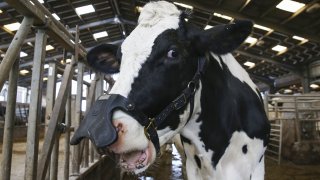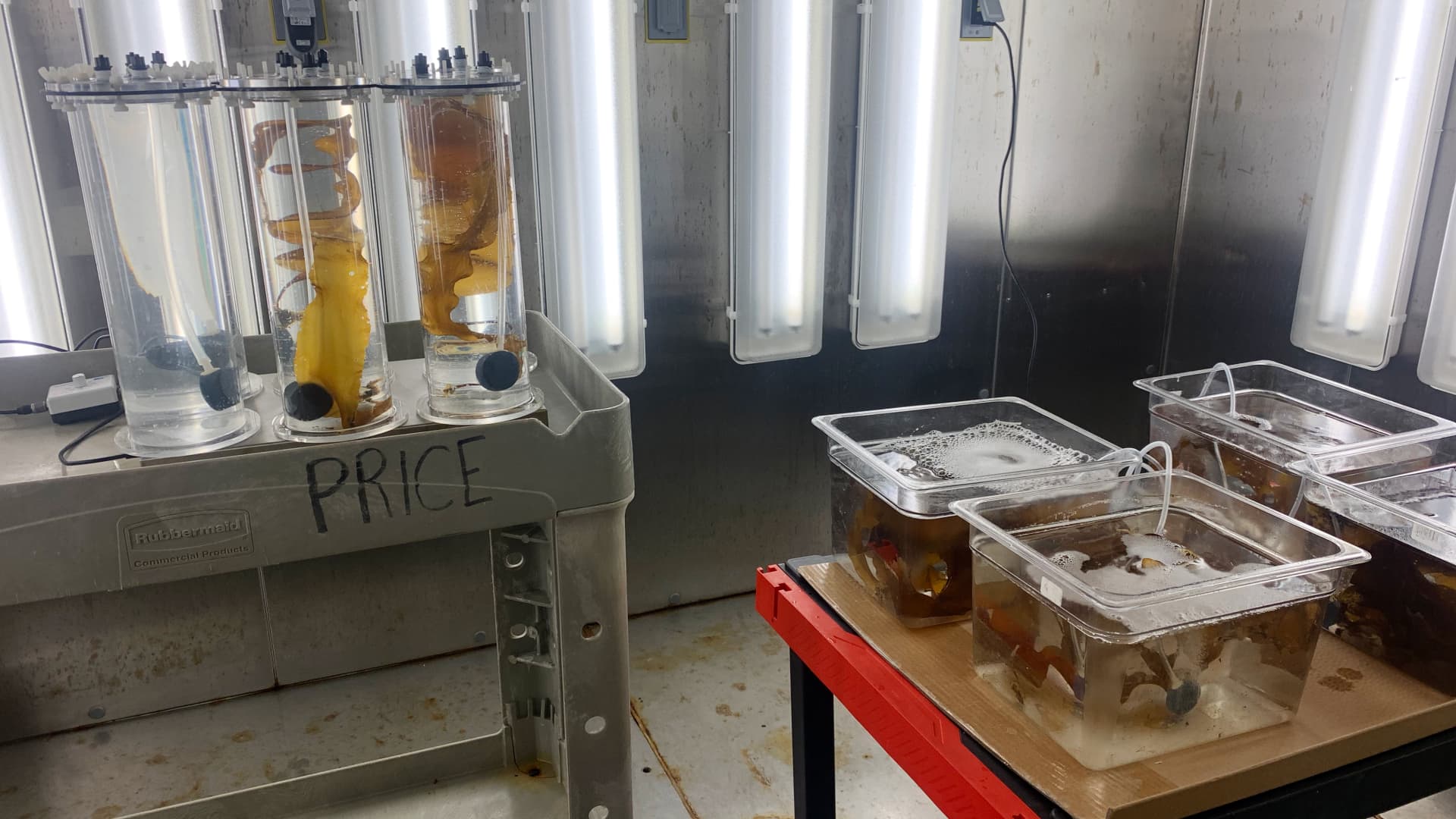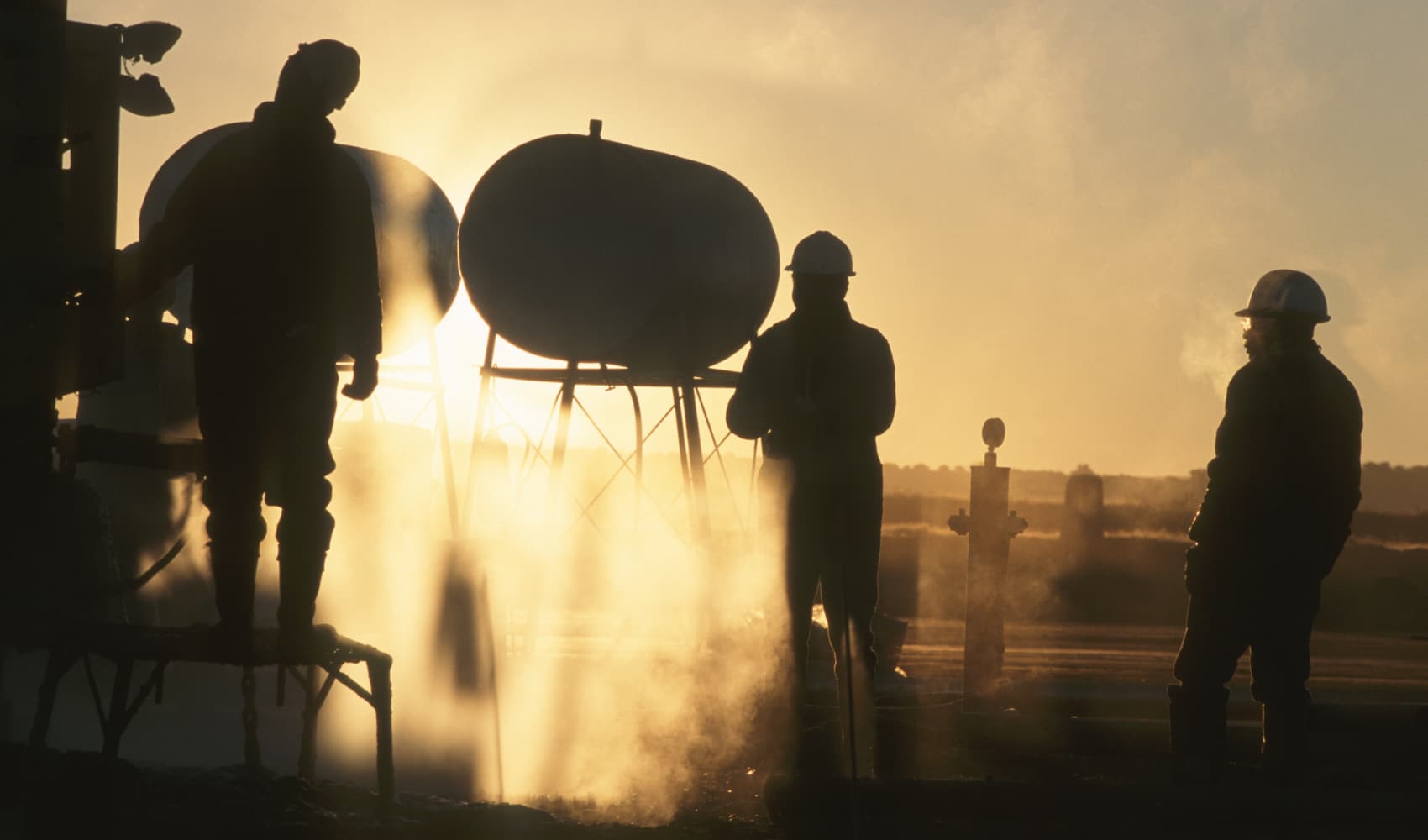
- About 25% of all methane is produced directly from fermentation by cows.
- Seaweed feed is reducing the amount of methane cows produce, according to research being conducted at the University of New Hampshire.
- Methane is a far more destructive greenhouse gas than carbon.
Methane is a major contributor to global heating, and cows produce a lot of it. There may, however, be a way to reduce all that gas: seaweed.
On a research farm at the University of New Hampshire, scientists are feeding cows seaweed in an attempt to reduce the amount of methane they produce.
Get Tri-state area news and weather forecasts to your inbox. Sign up for NBC New York newsletters.
"We observed a reduction in methane up to 20%," said Andre Brito, associate professor of dairy cattle nutrition and management at UNH. "And 20% is a start. We are exploring different types of seaweeds, and the goal is to use locally produced seaweeds."
Methane is more than 80 times as potent as carbon dioxide in warming the atmosphere, according to the United Nations Economic Commission for Europe, although it breaks down more quickly. And about 25% of all methane is produced directly from fermentation by cows. The burps are actually worse than the farts.
The seaweed comes from the Gulf of Maine, which boasts more than 250 different species, some of which also grow off the West Coast of the U.S. and in Europe. It is essentially a giant repository to look for potential solutions.
It is being harvested and studied by the Bigelow Laboratory for Ocean Sciences, which received a $5 million charitable grant last summer for the first study and just announced a new $10 million grant from the U.S. Department of Agriculture.

"Despite the best efforts to try to find ways to reduce that carbon 'hoofprint,' there's lots more that can be improved in terms of changing cow's diets. We think that seaweed can be part of that solution," said Nichole Price, senior research scientist at Bigelow.
Money Report
While the studies are about reducing methane emissions, research scientists have to be very careful that the seaweed doesn't affect milk production.
"Farmers get paid based on milk, butter, fat and milk protein. Our goal is to reduce methane but at the same time not reduce milk performance," said Brito.
The seaweed may actually improve that performance, according to researchers, because reducing all the burping and farting allows the cows to use that energy instead for milk and beef production. That would be a boon not only for the environment but for the local dairy industry.
While the seaweed feed could be transported to other parts of the country for both beef and dairy cattle, that would run counter to the goal of reducing emissions. Transportation increases the carbon footprint. Instead, Price is looking at ways the different strains of seaweed could be grown in landlocked areas.
"We're also very interested in species that can be cultivated or farmed, not wild harvested, because we see this as the sustainable move forward to guaranteeing quality production," said Price. "When we start talking about the Midwest or the center of the country, that's where we think that the micro algae solution would be most relevant because you can scale up production of micro algae right where the farm action is happening as well."
Price said Maine's seaweed industry is already scaling up to meet the potential new demand. A boost to the local business and a potential breath of fresh air to the planet.







